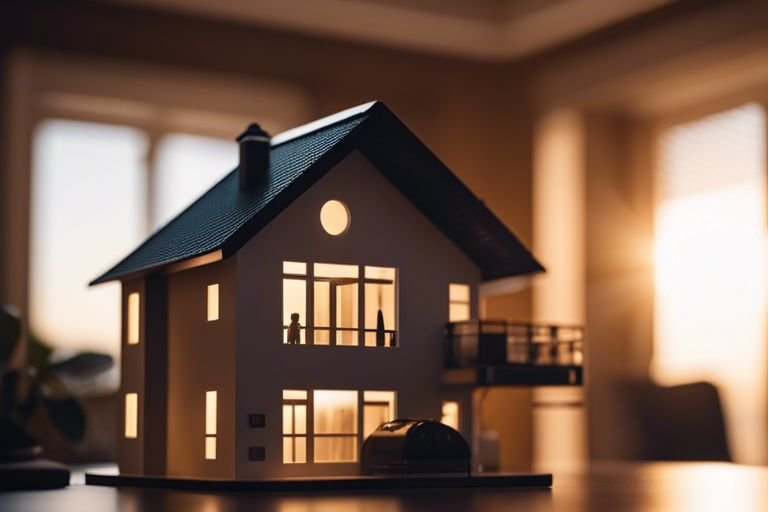Many homeowners find themselves asking, “What is homeowners insurance, and why do I need it?” Your home is one of your most significant investments, so protecting it should be a top priority. In this blog post, we will explore the ins and outs of homeowners insurance, including what it covers, why it’s imperative, and how it can provide you with peace of mind. By the end, you’ll have a clear understanding of the importance of homeowners insurance and why having it is crucial for safeguarding your home and belongings.
Key Takeaways:
- Protection for your home: Homeowners insurance provides financial protection in case of damage or loss to your home due to covered perils like fire, theft, or severe weather.
- Liability coverage: This insurance also offers liability coverage in case someone is injured on your property and you are found legally responsible.
- Mortgage requirement: Many mortgage lenders require homeowners insurance to protect their investment in case of a catastrophic event that damages the home.
What is Homeowners Insurance?
Before delving into the details of homeowners insurance, it’s important to understand the basics. Homeowners insurance is a type of property insurance that provides coverage for damages to your home, along with protection for your belongings and liability protection in case someone is injured on your property. Essentially, it is designed to protect you financially in case of unforeseen events like natural disasters, theft, or accidents.
Definition and Purpose
Any homeowner insurance policy typically covers the structure of your home, personal belongings, liability protection, and additional living expenses if your home becomes uninhabitable. The primary purpose of homeowners insurance is to provide financial protection to you in case of unforeseen events that could cause damage to your home or personal property.
Types of Coverage
An imperative aspect of homeowners insurance is understanding the different types of coverage available to you. There are several common types of coverage included in a standard homeowners insurance policy, such as dwelling coverage, personal property coverage, liability protection, and additional living expenses coverage. Perceiving the details of each type of coverage can help you better understand what is protected under your policy.
| Types of Coverage | Description |
|---|---|
| Dwelling Coverage | Covers the structure of your home in case of damage from covered perils like fire, hail, or windstorms. |
| Personal Property Coverage | Protects your belongings inside your home, such as furniture, electronics, and clothing, in case of theft or damage. |
| Liability Protection | Provides coverage in case someone is injured on your property and you are found legally responsible. |
| Additional Living Expenses Coverage | Covers the costs of temporary living arrangements if your home is uninhabitable due to a covered event. |
Another important aspect of homeowners insurance is the concept of deductibles and coverage limits. Deductibles are the amount you agree to pay out of pocket before your insurance kicks in to cover the rest. Coverage limits refer to the maximum amount your insurance company will pay for a covered loss. It’s crucial to understand these terms and ensure you have adequate coverage based on your needs and budget. Perceiving the details of deductibles and coverage limits can help you make informed decisions when selecting a homeowners insurance policy.
Why Do I Need Homeowners Insurance?
Protecting Your Investment
Need to protect your investment in your home? Homeowners insurance can help safeguard one of your most significant assets. In the unfortunate event of damage from a natural disaster, fire, or theft, having homeowners insurance can provide you with the financial support needed to repair or rebuild your home.
Financial Security
Need to ensure your financial security? Homeowners insurance can offer you peace of mind by covering the costs of rebuilding or repairing your home if it’s damaged or destroyed. Additionally, it can help protect you from liability claims if someone is injured on your property.
Protecting your home is not just about securing your physical property; it’s also about safeguarding your financial future. With homeowners insurance, you can have the confidence that you won’t face significant financial burdens in case of unexpected events.
Compliance with Mortgage Requirements
With homeowners insurance, you can comply with mortgage requirements set by lenders. Most mortgage lenders mandate that you have homeowners insurance to protect their investment in your property. By having the necessary insurance coverage, you ensure that you meet the conditions of your mortgage agreement.
Investment in homeowners insurance not only protects you but also satisfies the conditions of your mortgage lender, demonstrating your commitment to safeguarding your property and their financial interests as well.
What Does Homeowners Insurance Cover?
Damage to the Structure
To protect your home from unforeseen events such as fires, storms, or vandalism, homeowners insurance typically covers damage to the structure of your house. An crucial aspect of homeowners insurance is that it can help you rebuild or repair your home if it’s damaged or destroyed due to a covered peril.
Personal Property
Property coverage in homeowners insurance not only extends to the physical structure of your house but also includes your personal belongings inside. This means that items such as furniture, clothing, and electronics are usually covered in case of theft, damage, or loss due to covered incidents.
For instance, if a break-in occurs at your home and your valuable belongings are stolen, your homeowners insurance can help cover the cost of replacing those items up to the limits of your policy.
Liability Protection
Personal liability coverage is another crucial feature of homeowners insurance. If someone is injured on your property and holds you responsible, this coverage can help protect your assets by covering legal expenses, medical bills, and damages awarded in a lawsuit.
A homeowners insurance policy typically includes liability protection to shield you from financial repercussions in case of accidents or injuries that occur on your property. This coverage can provide you with peace of mind knowing that you have financial protection in place.
Additional Living Expenses
Living expenses coverage in homeowners insurance can be a lifeline in times of crisis. If your home becomes uninhabitable due to a covered peril and you need to stay in a hotel or rent another place temporarily, this coverage can help reimburse you for the additional expenses incurred.
The coverage for additional living expenses is designed to ensure that you and your family maintain your standard of living even when your home is undergoing repairs or reconstruction after a covered event.
How Much Does Homeowners Insurance Cost?
Despite the importance of homeowners insurance, the cost can vary significantly depending on various factors.
Factors Affecting Premiums
- The size, location, and age of your home
- Your credit score and claims history
- The deductible and coverage limits you choose
The more coverage you need and the higher the limits, the more you can expect to pay in premiums.
Average Cost of Homeowners Insurance
Any insurance company will consider these factors when determining your premium, which is typically paid annually or in monthly installments.
Discounts and Ways to Save
Homeowners may be eligible for discounts if they have security systems, smoke alarms, or multiple policies with the same insurer.
Factors
Comparing quotes from different insurers and adjusting your coverage limits can also help you save on your homeowners insurance costs.
How to Choose the Right Homeowners Insurance Policy
Researching Insurance Providers
For your peace of mind, it’s necessary to research insurance providers before making a decision. Look into their financial stability, customer reviews, and how well they handle claims. You can also check with your state’s insurance department to see if there have been any complaints filed against the company.
Comparing Policy Options
Policy options vary from one insurance provider to another, so it’s crucial to compare them carefully. When comparing policies, consider the coverage limits, deductibles, and any additional coverage options available. Make sure to weigh the costs against the benefits to find a policy that offers the best value for your needs.
Policy Options
| Coverage Limits | Deductibles |
| Specifies the maximum amount the insurer will pay for a covered loss. | The amount of money you must pay out of pocket before your insurance kicks in. |
For instance, you may want to consider a policy with higher coverage limits if you have valuable possessions that need to be protected. On the other hand, if you prefer lower out-of-pocket expenses when filing a claim, you might opt for a policy with a lower deductible.
Reading Policy Fine Print
An important step in choosing the right homeowners insurance policy is reading the fine print. Take the time to understand the terms and conditions of the policy, including what is covered and what is not. Pay close attention to any exclusions or limitations that may apply, as these can impact your coverage in certain situations.
Reading Policy Fine Print
| Coverage Details | Exclusions |
| Specifies what perils are covered under the policy, such as fire, theft, or natural disasters. | List of items or events that the policy does not cover, such as earthquakes or floods. |
Right coverage can make a significant difference in protecting your home and belongings. By understanding the fine print, you can ensure you have the right coverage in place to safeguard your investment.
Common Misconceptions About Homeowners Insurance
“I Don’t Need Insurance Because I Have a New Home”
Insurance may not be at the forefront of your mind when you have a new home, but accidents and unexpected events can happen to anyone at any time. While your home may be new and in excellent condition, unforeseen circumstances like fires, theft, or natural disasters can still occur. Homeowners insurance provides you with financial protection in case of such events, allowing you to rebuild or replace your belongings without bearing the full financial burden yourself.
“Homeowners Insurance Only Covers Natural Disasters”
Covers
It’s a common misconception that homeowners insurance only covers natural disasters like earthquakes or floods. In reality, homeowners insurance typically offers coverage for a wide range of incidents besides natural disasters, such as theft, vandalism, liability lawsuits, and more. It’s crucial to review your policy and understand what it covers to ensure you are adequately protected in various scenarios beyond just natural disasters.
“I Can Afford to Self-Insure”
With
With the belief that you can afford to cover any potential damages or losses out of pocket, you might consider self-insuring instead of purchasing homeowners insurance. However, it’s necessary to consider the potential financial impact of major unforeseen events like a house fire, which could result in significant costs that may exceed what you have saved for emergencies. Homeowners insurance provides you with peace of mind knowing that you have a safety net to protect you financially in unexpected situations, offering you security and stability in times of need.
To wrap up
Ultimately, homeowners insurance is crucial for protecting your biggest investment – your home. It provides financial security in case unexpected events like natural disasters, fires, theft, or liability claims occur. Without homeowners insurance, you could be left facing significant financial losses that could potentially jeopardize your home and assets.
By having a homeowners insurance policy, you can have peace of mind knowing that you are financially protected and can easily recover from any unforeseen damages or losses. So, even though it may seem like an extra expense, the benefits of having homeowners insurance far outweigh the costs, making it a necessary investment to safeguard your home and belongings.
FAQ
Q: What is homeowners insurance?
A: Homeowners insurance is a type of property insurance that provides coverage for damage to your home and personal belongings. It can also offer liability protection in case someone is injured on your property.
Q: Why do I need homeowners insurance?
A: Homeowners insurance is important because it helps protect your most valuable asset – your home. It provides financial protection in the event of disasters, such as fire, theft, or natural disasters. It also gives you peace of mind knowing that you are covered if something unexpected happens.
Q: What does homeowners insurance typically cover?
A: Homeowners insurance typically covers damage to your home and other structures on your property, personal belongings, additional living expenses if you have to temporarily move out of your home, and liability protection if someone is injured on your property or you damage someone else’s property.
Q: Are there different types of homeowners insurance policies?
A: Yes, there are different types of homeowners insurance policies, such as HO-1, HO-2, HO-3, HO-5, and HO-8. The most common policy is an HO-3, which provides comprehensive coverage for your home and belongings.
Q: How much homeowners insurance coverage do I need?
A: The amount of homeowners insurance coverage you need depends on factors such as the value of your home, your belongings, and your assets. It’s important to review your policy regularly and update it as needed to ensure you have adequate coverage.




